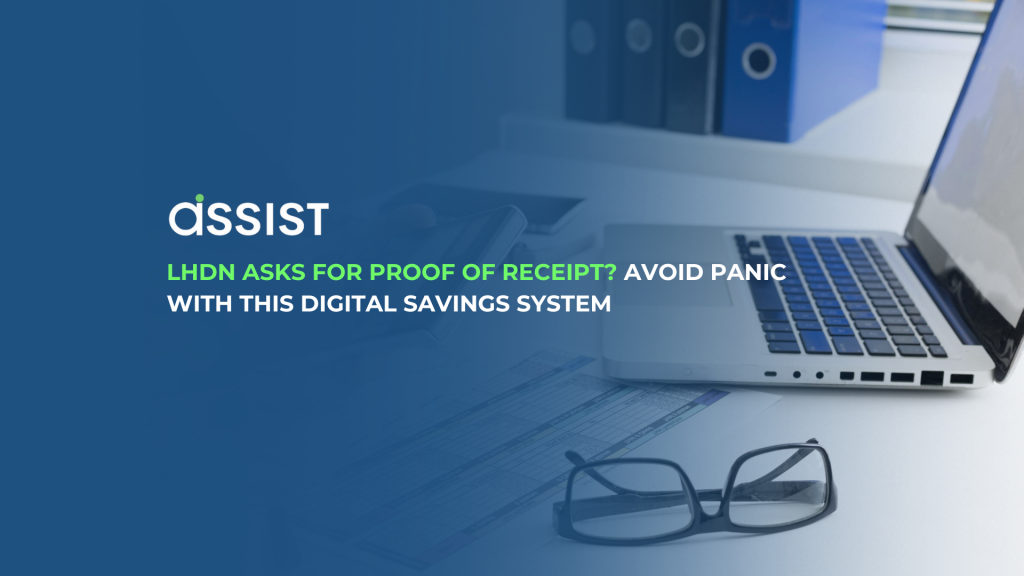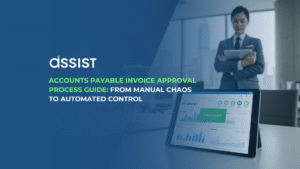Imagine you’ve just completed your e-Filing. A few weeks later, you receive an email from the IRB asking you to submit a copy of a certain receipt. Panic?
Actually, requests like this are common. They usually happen when the IRB wants to verify the information on your tax form — either through a random audit or a further review.
This article will help you understand:
- What to do when you receive a request like this
- What types of receipts to keep
- And how to prepare from the start
Why Do You Need to Keep Tax Receipts for 7 Years?
According to IRB guidelines, all tax-related documents must be kept for a minimum of 7 years from the year of assessment.
The purpose is:
- In the event of a review or audit
- You can support each deduction claim with valid documents
- And avoid the risk of fines or penalties
Many taxpayers assume that completing e-Filing means the job is done. However, in reality, without complete documentation, your deduction claim may be rejected.
Types of Receipts Often Requested by the IRB
Not all receipts need to be submitted, but here are the most commonly requested categories:
Regular Deduction Receipts:
- Zakat and donations (registered institutions)
- Life or education insurance (takaful)
- Purchase of printed books and newspapers
- Tuition fees (recognized courses)
- Treatment of serious illnesses
- Supportive devices for the disabled
- Children’s SSPN savings
What the IRB Wants to See in a Receipt:
- Payer name
- Transaction date
- Name of service provider or institution
- Payment amount
Tip: Also save receipts in digital form (PDF or image) — as long as they are clear and easy to read.
What Should You Do When You Receive a Letter or Email From the IRB?
Received a letter? Don’t panic. Follow these steps:
Step 1: Check the Letter Carefully
- Identify the type of deduction that needs to be supported
- Check the deadline for submitting documents
Step 2: Verify the Authenticity of the Letter
Make sure it comes from an official email address such as @hasil.gov.my
Step 3: Collect Related Documents
Find receipts according to the specified category
Step 4: Prepare an Organized File
- Scan or copy the receipt clearly
- Use an easy-to-understand file name, for example: Zakat_Tabunghaji_2023.pdf
Step 5: Send According to Instructions
Through the MyTax system or email reply as instructed
Example of a brief email reply:
Sir/Madam,
Here I am attaching supporting documents for the tax receipt request for the 2023 assessment year. Thank you.
How to Organize Receipts So You Don’t Get It Wrong When Asked for
Here are best practices you can start today:
Save Digitally
- Use Google Drive, Dropbox or OneDrive
- Create folders by assessment year
Consistent File Naming
Example: Takaful_Ali_AIA_2023.pdf
Receipt Scanning App
- Use an app like CamScanner or Microsoft Lens for clearer results.
What Happens If You Fail to Submit a Receipt?
Failure to provide evidence when requested may result in:
- Deductions being denied
- Fine up to RM10,000
- Imprisonment (Section 119A of the Income Tax Act)
- You may also be placed on an audit watch list
In short, it is better to be prepared from the beginning than to take risks later.
Realistic Story: “I Was Once Asked by the IRB to Submit a Receipt…”
Ali, a young executive, received an email from the IRB requesting copies of his book and takaful receipts that he had claimed in e-Filing. Fortunately, he had saved all the receipts in Google Drive. Ali organized the files by year and sent an official reply with a link to the documents. Within a week, the IRB replied that the review was complete and no further action was required.
With advance preparation, this process can be easy — just like Ali.
Conclusion: Build Your System Today, Avoid Problems Later
Being a prudent taxpayer is not just about completing e-Filing — it’s also about storing and managing documents properly. When you have an organized filing system, the process of an audit or IRB request can be completed easily and quickly.
If you are a business owner, freelancer or individual who wants a digital system for financial records and tax invoices, Assist.biz provides a platform that is simple and complies with tax compliance standards in Malaysia.





